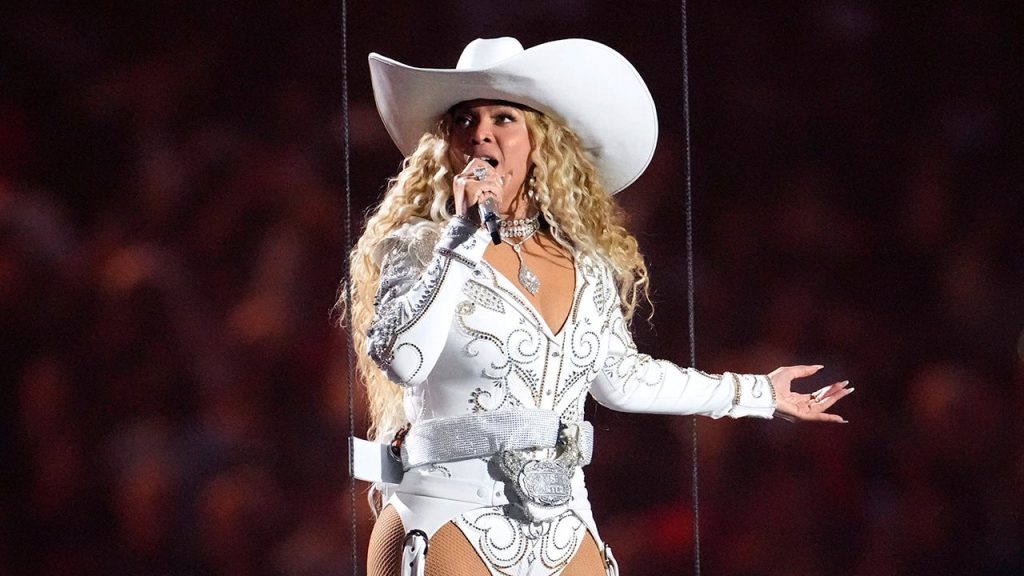Beyoncé’s electrifying halftime performance during the Christmas Day NFL game between the Houston Texans and Baltimore Ravens ignited a wave of excitement and controversy. Riding into Houston’s NRG Stadium atop a horse, the iconic performer delivered a showstopping medley of hits from her latest album, “Cowboy Carter,” captivating the audience with her signature blend of music, dance, and visual artistry. Her collaborators, Shaboozey and Post Malone, joined her on the field, elevating the energy of the performance. The grand finale featured Beyoncé ascending a scaffold, rising high above the field, where she dramatically formed finger guns with her hands as a massive “Bang” banner unfurled behind her. This seemingly simple gesture, however, sparked debate and added another layer to the ongoing discussion surrounding celebrations in the NFL.
While fans in the stadium roared with approval and social media buzzed with largely positive reviews, some NFL enthusiasts couldn’t help but notice the irony of Beyoncé’s finger-gun gesture, given the league’s season-long crackdown on similar celebrations by players. Throughout the season, several players had been penalized for using finger guns or other gestures mimicking violence after touchdowns or first downs. The NFL’s stance on these celebrations has been a point of contention, with the league arguing that such displays promote violence and send the wrong message, especially in today’s society.
The NFL’s position on player celebrations involving simulated violence has been firmly articulated by league officials. Troy Vincent, an NFL executive, addressed the issue during an October league meeting, emphasizing that such gestures are unacceptable in professional football. He highlighted the league’s responsibility as role models and the need to consider the broader societal context. Vincent stressed that these actions do not align with the image and values the NFL strives to represent.
Commissioner Roger Goodell echoed Vincent’s sentiments, reaffirming the league’s commitment to enforcing its long-standing policy against these demonstrations. He pointed to ongoing discussions with the players’ union, underscoring the importance of addressing the issue and ensuring a unified approach. Goodell reiterated the league’s belief that such celebrations are inappropriate and send a detrimental message.
The NFL’s rationale for penalizing these celebrations goes beyond simply maintaining order on the field. The league argues that in a society grappling with violence, professional athletes have a responsibility to promote positive behavior and avoid actions that could be interpreted as glorifying or trivializing violence. The emphasis is on setting a positive example and recognizing the potential influence players have on fans, particularly young people.
Beyoncé’s halftime performance, while widely praised for its artistry and entertainment value, inadvertently highlighted the complexities and inconsistencies surrounding the NFL’s celebration policy. The fact that a performer could execute a gesture deemed punishable for players on the same field sparked questions about the league’s standards and the message it sends. The incident underscored the ongoing debate about the balance between player expression and the NFL’s image, leaving room for further discussion and clarification in the future.


